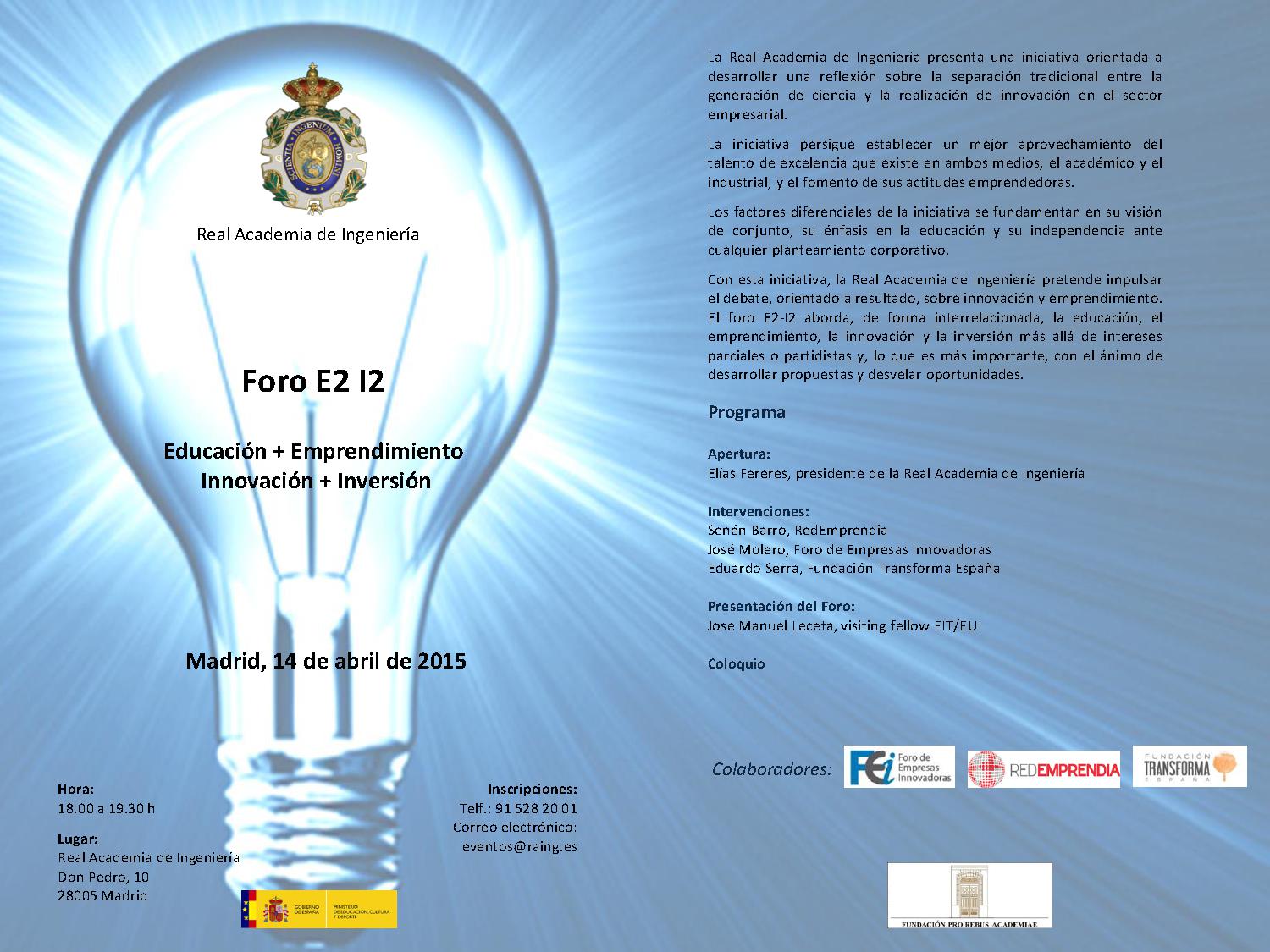 IFI co-authored a book that sets out the elements for the design of a streamlined and future-proof policy on innovation and entrepreneurship in Europe. It is the result of a collective effort led by CEPS, which formed a Task Force on Innovation and Entrepreneurship in the EU, composed of authoritative scholars, industry experts, entrepreneurs, practitioners and representatives of EU and international institutions. The result of these deliberations is a set of policy recommendations aimed at improving the overall environment and approach for entrepreneurship and innovation in Europe and a new paradigmatic understanding of the role that innovation and entrepreneurship can and should play within the overall context of EU policy. These recommendations are based on a new, multi-dimensional approach to both innovation and entrepreneurship as social phenomena and to the policies that are meant to promote them.
IFI co-authored a book that sets out the elements for the design of a streamlined and future-proof policy on innovation and entrepreneurship in Europe. It is the result of a collective effort led by CEPS, which formed a Task Force on Innovation and Entrepreneurship in the EU, composed of authoritative scholars, industry experts, entrepreneurs, practitioners and representatives of EU and international institutions. The result of these deliberations is a set of policy recommendations aimed at improving the overall environment and approach for entrepreneurship and innovation in Europe and a new paradigmatic understanding of the role that innovation and entrepreneurship can and should play within the overall context of EU policy. These recommendations are based on a new, multi-dimensional approach to both innovation and entrepreneurship as social phenomena and to the policies that are meant to promote them.
The Task Force was chaired by José Manuel Leceta, former Chairman and Co-founder of Insight Foresight Institute (IFI), currently DG of Red.es. Andrea Renda, CEPS Senior Research Fellow, Totti Könnölä, Managing Director and Co-founder of Insight Foresight Institute and Felice Simonelli, CEPS Research Fellow, served as rapporteurs.
image©CEPS
 Juan Mulet, the member of IFI Innovation Council writes in Cinco Dias, one of the leading economic daily papers in Spain on how innovation, purchase and employment are, or should be, connected.
Juan Mulet, the member of IFI Innovation Council writes in Cinco Dias, one of the leading economic daily papers in Spain on how innovation, purchase and employment are, or should be, connected. A reflection of the almost finished year: at the same time that the Cotec Foundation for Innovation celebrated its “the must” spring event, near Seseña a tyre bonfire was burning full flame. Those lost tyres could have become a business opportunity, an important service for our community and to the environment. Since the 70s the MIT professor Nichols Ashford, and more recently, Andrea Renda, from the CEPS European think tank, find evidence that an adequate regulation can create innovation, particularly to face the grand societal challenges. On the contrary, an inappropriate regulation can not only worsen the emerging opportunities, but prevent the potential innovators, professionals and entrepreneurs to innovate at all.
A reflection of the almost finished year: at the same time that the Cotec Foundation for Innovation celebrated its “the must” spring event, near Seseña a tyre bonfire was burning full flame. Those lost tyres could have become a business opportunity, an important service for our community and to the environment. Since the 70s the MIT professor Nichols Ashford, and more recently, Andrea Renda, from the CEPS European think tank, find evidence that an adequate regulation can create innovation, particularly to face the grand societal challenges. On the contrary, an inappropriate regulation can not only worsen the emerging opportunities, but prevent the potential innovators, professionals and entrepreneurs to innovate at all. 1. Introduction
1. Introduction